Premium Only Content
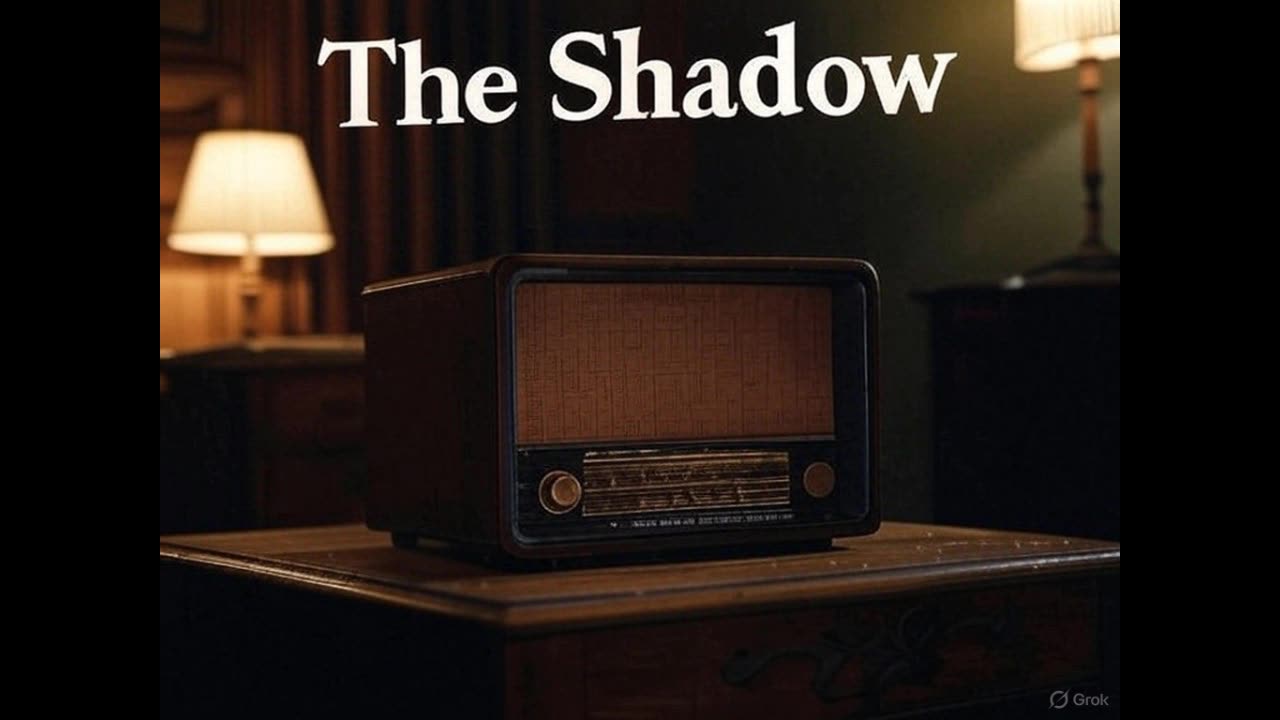
The Shadow: The Blind Beggar Dies (April 17, 1938)
Setting: A gritty 1938 American city, likely New York, focusing on the seedy underbelly of urban life, including street corners, back alleys, and criminal hideouts. The episode uses sound effects like footsteps, street noises, and gunfire to create a tense, noir atmosphere.
Plot:
Introduction: The episode opens with the iconic line, “Who knows what evil lurks in the hearts of men? The Shadow knows!” delivered by Orson Welles, followed by his sinister laugh. The narrator sets the scene, introducing The Shadow, a mysterious crimefighter who uses his ability to “cloud men’s minds” to battle the underworld.
The Crime: The story begins with the murder of “Singing Jim,” a beloved blind street singer and beggar known for his cheerful performances. Jim is killed by racketeers running a protection racket that extorts the city’s street beggars, demanding a cut of their meager earnings. The episode likely features a poignant scene of Jim’s singing, interrupted by violence, with sound effects of a struggle or gunshot.
The Shadow’s Investigation: Lamont Cranston, as The Shadow, learns of Jim’s death, possibly through Margot Lane or street contacts like Apple Mary, Lame Bill, or Limpy Dugan, fellow beggars who witness the crime. Using his invisibility and hypnotic powers, The Shadow infiltrates the beggar community, gathering clues about the racketeers, led by villains Marty Nelson and Spike Grogan. A scene might depict The Shadow interrogating a thug in a dark alley, his disembodied voice terrifying the criminal.
Confronting the Racketeers: The investigation leads to a confrontation with Nelson and Grogan, who are shaking down dozens of beggars for profit (estimated at $1 per beggar weekly, equivalent to nearly $1,000 today for 50 beggars). The Shadow thwarts their scheme, possibly infiltrating their hideout or setting a trap with Margot’s help. Action sequences include fistfights or chases, punctuated by sound effects like breaking glass or police sirens. Officer Clancy, a recurring police character, may appear, initially suspicious of The Shadow but aided by his efforts.
Climax and Resolution: The climax features The Shadow outwitting the racketeers, using his mental powers to turn them against each other or expose their crimes. Nelson and Grogan are apprehended or meet a grim fate, ensuring justice for Singing Jim and the beggars. The episode likely ends with a reflective moment, perhaps The Shadow visiting Jim’s street corner, followed by the closing line, “The weed of crime bears bitter fruit. Crime does not pay! The Shadow knows!” and Welles’s haunting laugh.
Themes: Justice for the marginalized, the corruption of greed, and the power of vigilance. The episode highlights The Shadow’s role as a protector of society’s vulnerable, contrasting the racketeers’ exploitation with his moral crusade.
Cast and Roles:
The Shadow/Lamont Cranston: Played by Orson Welles, delivering a commanding, dual performance—suave as Cranston, menacing as The Shadow. Welles’s rich voice and dramatic flair make the character’s invisibility and authority palpable.
Margot Lane: Played by Margot Stevenson, portraying Cranston’s “friend and companion” and crime-solving partner. Stevenson’s performance adds warmth and courage, with Margot possibly assisting in gathering intel or distracting the villains.
Marty Nelson: An unnamed actor, voicing the lead racketeer with a tough, menacing tone, typical of 1930s gangster archetypes.
Spike Grogan: Another unnamed actor, playing Nelson’s brutal accomplice, likely with a gruff, thuggish delivery.
Singing Jim: An unnamed actor, briefly portraying the blind beggar with a sympathetic, melodic voice before his murder.
Other Characters:
Officer Clancy: An unnamed actor, playing a skeptical but well-meaning policeman, a recurring figure in the series.
Apple Mary, Lame Bill, Limpy Dugan: Unnamed actors, voicing the beggars with distinct, colorful performances to evoke their hardship and resilience.
Narrator/Announcer: Likely Frank Readick or another NBC announcer, delivering the opening and closing lines, though Welles himself may handle The Shadow’s signature phrases. The announcer also reads the B.F. Goodrich Tires sponsor message.
Note on Cast: The Shadow credited only major stars like Welles and Stevenson, with supporting roles filled by versatile radio actors, often unlisted, per sources like otrcat.com. The ensemble’s performances, heightened for drama, bring the gritty urban setting to life.
Production Details:
Music: An organ-driven theme, likely composed by Rosa Rio, opens and closes the episode, with dramatic stings accentuating action scenes. The score enhances the noir mood, typical of The Shadow’s soundscape.
Writer: Likely Arch Oboler or a staff writer under Walter B. Gibson’s supervision, adapting pulp magazine themes for radio, focusing on urban crime and The Shadow’s mystical powers.
Director: Not explicitly credited, but likely overseen by NBC’s production team, ensuring the fast-paced, suspenseful pacing.
Sound Effects: Crucial to the episode, including street noises, Jim’s singing, gunshots, footsteps, and crowd murmurs, creating a vivid urban underworld. The Shadow’s invisibility is suggested through vocal filters or sudden silences.
Sponsor: B.F. Goodrich Tires, with a commercial break promoting tire safety, typical of the 1938 summer season.
World and National Events Around April 17, 1938:
To provide context for the broadcast, here are key world and national events occurring in April 1938, drawn from historical sources, reflecting the turbulent global and domestic climate listeners would have been aware of:
World Events:
German Annexation of Austria (Anschluss): On March 11–13, 1938, Nazi Germany forcibly annexed Austria, incorporating it into the Third Reich in what was known as the Anschluss. This was followed by a wave of anti-Jewish violence in Vienna and other Austrian cities, escalating tensions in Europe. On April 10, a referendum in Austria, heavily manipulated by Nazi propaganda, overwhelmingly approved the annexation, solidifying Hitler’s expansionist agenda. These events heightened fears of a broader European conflict, as reported in American newspapers.
Spanish Civil War: The Spanish Civil War raged, with Francisco Franco’s Nationalist forces gaining ground. In April, the Battle of Gandesa and the Aragon Offensive saw Nationalist victories, supported by Italian air forces bombing Republican strongholds like Barcelona (March 17–18). The Vatican’s recognition of Franco’s government in April further legitimized his regime, while American neutrality policies limited U.S. involvement, though many Americans sympathized with the Republican cause.
Japanese Invasion of China: The Second Sino-Japanese War continued, with Japan’s aggressive expansion in China causing widespread devastation. The Battle of Taierzhuang (March–April 1938) was a rare Chinese victory, but Japan’s dominance persisted, alarming U.S. audiences concerned about global aggression.
Munich Crisis Prelude: Tensions over Czechoslovakia’s Sudetenland, a region with a large ethnic German population, were escalating. On April 23, Sudeten Germans demanded self-government, backed by Hitler, foreshadowing the Munich Agreement later in 1938. This crisis, reported in U.S. media, underscored the growing threat of Nazi Germany.
National Events:
March of Dimes Founded: On January 3, 1938, President Franklin D. Roosevelt established the National Foundation for Infantile Paralysis, later renamed the March of Dimes, to combat polio, a major public health crisis. By April, fundraising efforts were underway, resonating with American families and reflected in radio campaigns.
Fair Labor Standards Act Progress: The Fair Labor Standards Act, establishing a federal minimum wage (25 cents per hour) and maximum workweek (44 hours), was under debate in Congress, passing in June 1938. In April, labor unions and workers were vocal about economic recovery, as unemployment remained high at 19% following the 1937–38 recession.
Superman’s Debut: In April 1938, Action Comics #1 (cover-dated June) was published, introducing Superman, created by Jerry Siegel and Joe Shuster. This cultural milestone, hitting newsstands around the time of the broadcast, marked the birth of the superhero genre, influencing popular culture and radio storytelling.
Sports and Entertainment: On April 1, heavyweight boxing champion Joe Louis knocked out Harry Thomas in Chicago, his third title defense, boosting national morale. The 42nd Boston Marathon (April 18) was won by Leslie Pawson, and cultural events like the premiere of Clifford Goldsmith’s play What a Life (April 13) reflected a vibrant entertainment scene amidst economic struggles.
-
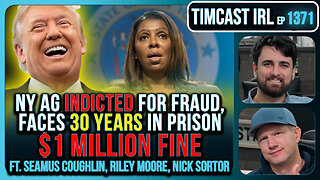 2:43:30
2:43:30
TimcastIRL
4 hours agoNY AG Indicted For FRAUD, Faces 30 Years In Prison, $1 MILLION FINE | Timcast IRL
186K75 -
 1:09:16
1:09:16
Man in America
14 hours agomRNA 2.0: This Frightening Tech Can Target Your BRAIN Using Biological Post Codes
29.3K7 -
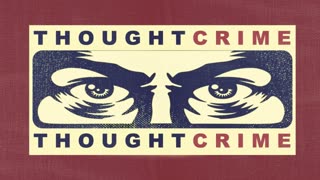 1:28:31
1:28:31
The Charlie Kirk Show
4 hours agoTHOUGHTCRIME Ep. 100 — Turning Point Halftime? Potatoes and Katie Porter? Hasan the Dog Shocker?
77.8K29 -
 LIVE
LIVE
SpartakusLIVE
5 hours agoNEW Update, NEW Meta || Zombies Mode is BACK - Smokes NURFED
461 watching -
 13:10
13:10
Robbi On The Record
4 hours ago $0.05 earnedThe War on Christians | China’s Surveillance & Nigeria’s Killing Fields
24.9K23 -
 1:24:49
1:24:49
Flyover Conservatives
23 hours agoYour Home Just Became a Healing Room — The Truth About Red Light & Med Bed - Jonathan Otto | FOC Show
25.5K4 -
 2:11:35
2:11:35
Mally_Mouse
4 days ago🎮 Throwback Thursday! Let's Play: Kingdom Hearts 1 pt. 2
21.6K2 -
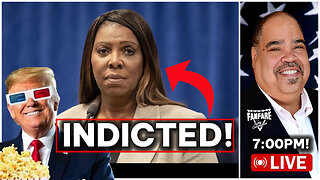 3:00:37
3:00:37
Barry Cunningham
7 hours agoBREAKING NEWS: LETITIA JAMES INDICTED FOR MORTGAGE FRAUD!!! LIBTARD TEARS ARE FLOWING!
53.4K28 -
 1:17:42
1:17:42
Glenn Greenwald
7 hours agoUS/Venezuela Escalations: Revisiting Key Developments and the Push for Regime Change | SYSTEM UPDATE SPECIAL
111K147 -
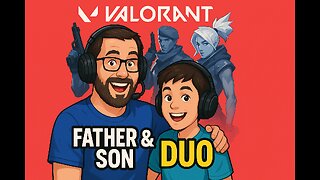 3:13:40
3:13:40
ProvenTactics
4 hours agoFPS Shooter Games
15K2